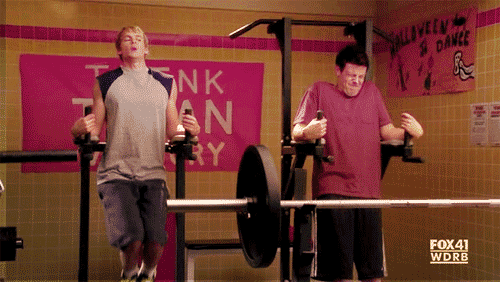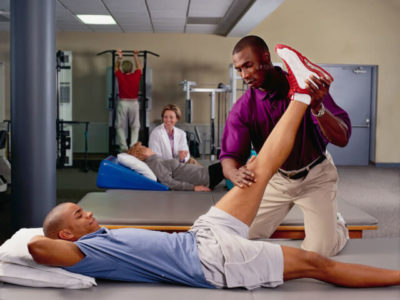Which major studies the different forms of exercise, helps prevent diseases and cures mental, physical and emotional ailments? Exercise science, aka the major of choice if you want to blow out 100 candles on your birthday someday. No, it doesn’t teach you how to build killer abs at the gym, but it does raise your awareness of human health, physiology and performance. For the college student, these are matters that aren’t only important, but necessary. Let’s see if exercise science is the major for you.
What You’ll Be Doing

I’m sure you know that exercise science teaches you how to exercise your muscles, but I bet you didn’t know that it also exercises your brain. Exercise science majors are required to take a variety of science classes including biology, chemistry, anatomy and some psychology. But don’t worry about those frogs you thought you were going to dissect; you’ll most likely work with a spinal cord dissection in the lab or analyze the effects of running on a treadmill.
Upsides

1. “Exercise science is a versatile pre-health major; a lot of the required classes can be tailored to meet your needs. I want to go to graduate school for occupational therapy while some of my peers want to go on to medical school. There are a few prerequisite classes, ranging from trigonometry to nutrition, but they really help you to prepare for the more applied classes later on. With this major, there is the option to take some of the classes as “surveys,” which is a little less in depth than the version of the class that someone who wanted to go to medical school would take.”—Dana Mack, Junior, FSU
2. “One can study the effects of exercise on the body and how exercise can prevent chronic conditions; basically exercise is a medicine. We don’t do plants and animals, but learn how to incorporate exercise as a physiological benefit.”—Stacey Alvarez-Alvarado, Doctoral Candidate, FSU
3. “It prepares you to do research studies for your dissertation. I am working for a brand health study that a company called Shaklee funded to see if this product Mind Works has potential benefits of maintaining cognitive levels and see if there is a correlation with the Vitamin B Complex supplement and Tai Chi Chinese martial arts exercise.”—Ming Chia Yeh, Doctoral Candidate, FSU
Downsides

1. “The exercise science program is pretty strict about getting off the map. If you fail two classes that puts you off track, you can be kicked out of the major.”—Dana Mack, Junior, FSU
2. “About 1,600 undergraduate students are part of the exercise science major and the problem is that they see the program as a route for pre-med and some people see it as a physiology approach or as an easier major than chemistry, and think this is an easy way out because ‘we talk about humans.’ Many students then do not go on to choose careers in exercise science. Also, those students who do major as pre-med fail to understand that exercise science is about studying prevention, [not cures].”—Dr. Jeong-Su Kim, Professor of Nutrition, Food and Exercise Science, FSU
3. “Exercise science majors does not mean sports psychology consultant. However, exercise science majors can work with athletes in controlling their physical markers and physiology, but exercise science majors don’t necessarily train athletes.”—Ming Chia Yeh, Doctoral Candidate, FSU
Career Opportunities

1. Personal Trainer
The beauty of this job is that you can change someone’s life by providing him with an exercise prescription and watch your exercise routine come to life as you watch your client progress physically, mentally and emotionally. Thanks to your exercise science degree and your new job as a personal trainer, someone can develop self-confidence and ward off cardiovascular diseases at the same time.
2. Physical Therapist
A physical therapist will serve as a superhero as they help reduce pain and improve physical mobility by creating a rehabilitation plan. According to the Labor of Bureau Statistics, by 2022 there will be a 36 percent growth in this field. Isn’t it nice to know our own bodies cure themselves by engaging in fitness programs and helping to reduce levels of chronic pain?
3. Occupational Therapist
They make sure that your health will not get in the way of your career and ambitions by developing a plan to prevent injuries and other pains. Occupational therapy varies depending on whether a patient needs a plan that involves their physical, mental, emotional or developmental health.
4. Dentist
Many exercise science majors continue their studies at dental school. Though exercise science is concerned with the human physiology, a main component of our physiology is teeth. Before we can feel good about our bodies, we need a bright smile that reflects our healthiness.
5. Physician
This career combines everything, including biology, chemistry and exercise science. Physicians help promote a healthy lifestyle, diagnose diseases and consult on treatments to these illnesses. Some physicians may be specialized in specific diseases like cardiology and help patients either recover or find treatments that can improve their overall wellbeing.



















